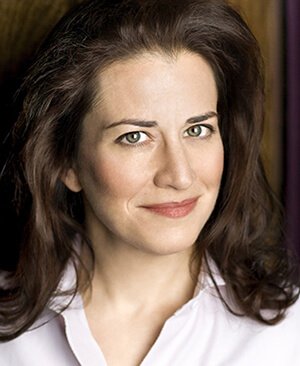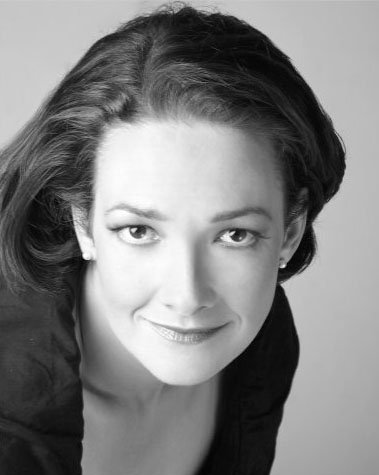Cantata Collective Program 16
April 3, 2022
Johann Sebastian Bach (1685-1750)
Was Gott tut, das ist wohlgetan, BWV 98
1. Chorus: Was Gott tut, das ist wohlgetan
2. Recitative (tenor): Ach Gott! wenn wirst du mich einmal
3. Aria (soprano): Hört, ihr Augen, auf zu weinen
4. Recitative (alto): Gott hat ein Herz, das des Erbarmens Überfluß
5. Aria (bass): Meinen Jesum laß ich nicht
In allen meinen Taten, BWV 97
1. Chorus: In allen meinen Taten
2. Aria (bass): Nichts ist es spat und frühe
3. Recitative (tenor): Es kann mir nichts geschehen
4. Aria (tenor): Ich traue seiner Gnaden
5. Recitative (alto): Er wolle meiner Sünden
6. Aria (alto): Leg ich mich späte nieder
7. Duet aria (soprano, bass): Hat er es denn beschlossen
8. Aria (soprano): Ich hab mich ihm ergeben
9. Chorale: So sei nun, Seele
Tonia D’Amelio, soprano
Heidi Waterman, alto
Brian Thorsett, tenor
Paul Max Tipton, bass
Marc Schachman & Michael Dupree, oboes
Kati Kyme & Lisa Weiss, violins
Anthony Martin, viola
William Skeen, cello
Kristin Zoernig, bass
Katherine Heater, organ
Guest Artists
Christine Brandes
Noted for her radiant, crystalline voice and superb musicianship, soprano Christine Brandes brings her committed artistry to a repertoire ranging from 17th century to newly composed works, performing at many of the world’s most distinguished festivals and concert series in programs spanning from recitals and chamber music to oratorio and opera.
She has sung for the following opera houses: San Francisco, Seattle, Washington National, Houston Grand, Minnesota, San Diego, New York City Opera, Philadelphia, Glimmerglass, Portland, Arizona, Opera de Nancy in principle roles ranging from Handel and Mozart, through Verdi to Bolcom and Britten.
Christine recently appeared with the Boston Symphony Chamber Players in György Kurtág’s Scenes from a Novel and with the Indianapolis Symphony Orchestra conducted by Carlo Rizzi in Debussy’s La Damoiselle élue and has sung Mahler’s Second Symphony with the Sacramento Philharmonic and Handel’s Israel in Egypt at Carnegie Hall with the New York Choral Society. She also gave a recital at King's College Chapel, Cambridge with organist, Jonathan Dimmock.
Ms. Brandes has given a series of important premieres including an Eric Moe commission entitled Of Color Braided All Desire with the Brentano String Quartet as part of the South Mountain Concert Series with further performances in New York City at the 92nd Street Y, and Jennifer Higdon’s In the Shadow of Sirius, based on poetry of former American Poet Laureate, W.S. Merwin with the Cypress String Quartet at the Herbst Theatre in San Francisco.
She has sung with the following orchestras: Cleveland, Chicago, New York Philharmonic, Philadelphia, Los Angeles, San Francisco, Houston, Atlanta, Detroit, Seattle, Minnesota, National Symphony, with such distinguished conductors as Simon Rattle, Pierre Boulez, Esa-Pekka Salonen, Frühbeck de Burgos, Robert Spano, Wolfgang Sawallisch and Alan Gilbert.
Tonia D’Amelio
Called “extravagantly charismatic” by the San Francisco Chronicle and praised by Fanfare Magazine for her “rapt vulnerability”, soprano Tonia D’Amelio has sung with opera companies, orchestras, chamber ensembles, and vocal consorts across the U.S. and abroad.
A versatile singer with a repertoire spanning five centuries, Tonia has participated in several opera and concert premieres. She created the role of Celia Brooke in Allen Shearer’s Middlemarch in Spring for both the world premiere in San Francisco and the revival with Charlottesville Opera, and sang in the first performance of Ryan Brown’s oratorio Mortal Lessons at the 10th annual Switchboard Music Festival. Tonia also sang featured roles in the modern stage premieres of Rameau’s The Temple of Glory (1745) with Philharmonia Baroque Orchestra, and Pallavicino’s The Amazons (1679) with Ars Minerva.
Other favorite credits include Drusilla in Monteverdi’s L’Incoronazione di Poppea with West Edge Opera, cantata recitals with Los Angeles Baroque Players, Mendelssohn’s Lobgesang with Philharmonia Baroque Orchestra, and liturgical performances of Monteverdi’s Vespers of 1610, Mozart’s Requiem, and J.S. Bach’s St. John Passion, as well as guest artist stints at the William Byrd Festival in Portland, Oregon, and the Edington Festival of Music within the Liturgy in Wiltshire, U.K.
Heidi Waterman
With a voice that has been praised for its’ “…rich, lustrous tone and gorgeous legato,” Heidi L. Waterman has enjoyed a wide-ranging career encompassing everything from film scores to early music to modern opera, and has performed as a soloist with nearly every major Bay Area ensemble including the San Francisco Symphony, San Francisco Opera, Philharmonia Baroque Orchestra and Chorale, and San Francisco Bach Choir. Recent highlights include Bach’s Christ lag in Todesbanden and Handel’s Dixit Dominus (Schola Cantorum), St. John Passion (S.F. Bach Choir), Purcell’s Te Deum and Jubilate (Philharmonia Baroque Orchestra and Chorale), Mendelssohn’s Elijah (Marin Oratorio and North Valley Chorale), and the (small but mighty) role of a Muse in Philharmonia Baroque’s magnificent production of Rameau’s opera Le Temple de la Gloire.
Paul Max Tipton
Described by the Atlanta Journal-Constitution as a dignified and beautiful singer, bass-baritone Paul Max Tipton enjoys an active career in opera, oratorio, and chamber music throughout North America, Europe, China, and Korea. He has recently appeared with the symphonies of San Antonio and Grand Rapids, with the Orchestra of St. Luke’s, and with the New York Philharmonic as part of their first-ever Bach Festival. He has sung with Bach Collegium Japan, Tenet (NYC), Blue Heron (Boston), and the Washington Bach Consort; in 2015 he debuted at Spoleto Festival USA and has appeared with Cut Circle (Palo Alto) at early music festivals in Maastricht, Antwerp, and Utrecht (2018). He has collaborated with Matthias Pintscher, Ton Koopman, Kenneth Slowik, Leonard Slatkin, Simon Carrington, Helmuth Rilling, Rubén Dubrovsky, Nicholas McGegan, and Ricky Ian Gordon; soloed for Grant Llewellyn with the Handel and Haydn Society; and performed the title role in Mozart’s Don Giovanni with Martin Katz conducting. He recently recorded Nicolaus Bruhns’s solo cantatas for bass for the BIS label, and has appeared in recital with Masaaki Suzuki. Current operatic credits include the role of Archibald Grosvenor in Patience with Odyssey Opera and Plutone in Monteverdi’s Orfeo with Göteborg Baroque in Sweden (2018). Mr. Tipton trained on full fellowship at the University of Michigan School of Music in Ann Arbor, being mentored by mezzo-soprano Luretta Bybee and tenor George Shirley. He is a graduate of the Yale University School of Music and Institute of Sacred Music, having studied with tenor James Taylor. Based in Boston, he was made a Lorraine Hunt Lieberson Fellow at Emmanuel Music in 2012. www.paulmaxtipton.com
Bach Cantata Translations
BWV 98 - "Was Gott tut, das ist wohlgetan"
| Cantata for the Twenty-first Sunday after Trinity |
|
| 1. Chor Was Gott tut, das ist wohlgetan, Es bleibt gerecht sein Wille; Wie er fängt meine Sachen an, Will ich ihm halten stille. Er ist mein Gott, Der in der Not Mich wohl weiß zu erhalten; Drum laß ich ihn nur walten. ("Was Gott tut, das ist wohlgetan," verse 1) |
1. Chorale What God does is well done, His will remains righteous; However he begins my affairs, I will silently keep to Him. He is my God, who in need knows well how to sustain me; therefore I let Him alone rule. |
| 2. Rezitativ T Ach Gott! wenn wirst du mich einmal Von meiner Leidensqual, Von meiner Angst befreien? Wie lange soll ich Tag und Nacht Um Hilfe schreien? Und ist kein Retter da! Der Herr is denen allen nah, Die seiner Macht Und seiner Huld vertrauen. Drum will ich meine Zuversicht Auf Gott alleine bauen, Denn er verläßt die Seinen nicht. |
2. Recitative T Ah God! When will You finally free me from my torment of sorrow, from my anxiety? How long shall I by day and night call for help? And there is no rescuer! The Lord is close to all who trust in His strength and His mercy. Therefore I will place my confidence in God alone, for He does not forsake His own. |
| 3. Arie S Hört, ihr Augen, auf zu weinen! Trag ich doch Mit Geduld mein schweres Joch. Gott, der Vater, lebet noch, Von den Seinen Läßt er keinen. Hört, ihr Augen, auf zu weinen! |
3. Aria S Cease weeping, my eyes! I will bear with patience my heavy yoke. God, the Father, still lives, of His own He loses none. Cease weeping, my eyes! |
| 4. Rezitativ A Gott hat ein Herz, das des Erbarmens Überfluß; Und wenn der Mund vor seinen Ohren klagt Und ihm des Kreuzes Schmerz Im Glauben und Vertrauen sagt, So bricht in ihm das Herz, Daß er sich über uns erbarmen muß. Er hält sein Wort; Er saget: Klopfet an, So wird euch aufgetan! Drum laßt uns alsofort, Wenn wir in höchsten Nöten schweben, Das Herz zu Gott allein erheben! |
4. Recitative A God has a heart that overflows with mercy; and when a mouth laments in His ears and tells of torment's pain in faith and loyalty, then His heart breaks in Him, so that He must have mercy upon us. He keeps His word; He says: Knock, it shall be opened to you! Therefore let us directly, whenever we are adrift in overwhelming suffering, lift our hearts to God alone! |
| 5. Arie B Meinen Jesum laß ich nicht, Bis mich erst sein Angesicht Wird erhören oder segnen. Er allein Soll mein Schutz in allem sein, Was mir Übels kann begegnen. |
5. Aria B I will not let go of my Jesus, until His countenance first heeds me or blesses me. He alone shall be my protection in everything, whatver evil can befall me. |
| Christoph Birkmann; "Was Gott tut, das ist wohlgetan," verse 1: Samuel Rodigast 1674 (mov't. 1) | |
| ©Pamela Dellal
|
|
BWV 97 - "In allen meinen Taten"
| Cantata for Various Church Occasions |
|
| 1. Chorale In allen meinen Taten Laß ich den Höchsten raten, Der alles kann und hat; Er muß zu allen Dingen, Solls anders wohl gelingen, Selbst geben Rat und Tat. |
1. Chorale In all my actions I take counsel from the Highest, who owns and is capable of everything; In all things He must give, so that they may prosper, His own advice and assistance. |
| 2. Arie B Nichts ist es spät und frühe Um alle sein Mühe, Mein Sorgen ist umsonst. Er mags mit meinen Sachen Nach seinem Willen machen, Ich stells in seine Gunst. |
2. Aria B There is nothing, early or late, to all my efforts, my worries are in vain. He may do with my affairs according to His will, I place them at His disposal. |
| 3. Rezitativ T Es kann mir nichts geschehen, Als was er hat ersehen, Und was mir selig ist: Ich nehm es, wie ers gibet; Was ihm von mir beliebet, Das hab ich auch erkiest. |
3. Recitative T Nothing can happen to me except what He has foreseen, and what is good for me: I take it as He gives it; what is preferable to Him on my behalf, that I have also selected. |
| 4. Arie T Ich traue seiner Gnaden, Die mich vor allem Schaden, Vor allem Übel schützt. Leb ich nach seinen Gesetzen, So wird mich nichts verletzen, Nichts fehlen, was mir nützt. |
4. Aria T I trust His grace, which protects me from all harm, from all evil. If I live according to His laws, then nothing will harm me, nothing will be missing that I need. |
| 5. Rezitativ A Er wolle meiner Sünden In Gnaden mich entbinden, Durchstreichen meine Schuld! Er wird auf mein Verbrechen Nicht stracks das Urteil sprechen Und haben noch Geduld. |
5. Recitative A He wishes to release me from my sins with grace, to cancel my guilt! For my transgression He will not pronounce a direct judgment and will yet have patience. |
| 6. Arie A Leg ich mich späte nieder, Erwache frühe wieder, Lieg oder ziehe fort, In Schwacheit und in Banden, Und was mir stößt zuhanden, So tröstet mich sein Wort. |
6. Aria A If I lay myself down late, wake up again early, lie still or go forth, in weakness and in bondage, and with whatever perchance occurs, yet His word comforts me.. |
| 7. Arie (Duett) S B Hat er es denn beschlossen, So will ich unverdrossen An mein Verhängnis gehn! Kein Unfall unter allen Soll mir zu harte fallen, Ich will ihn überstehn. |
7. Aria (Duet) S B If He has therefore decided it, then with no reluctance I will go to my destruction! No possible misfortune shall be too hard to bear, I will overcome it. |
| 8. Arie S Ihm hab ich mich ergeben Zu sterben und zu leben, Sobald er mir gebeut. Es sei heut oder morgen, Dafür laß ich ihn sorgen; Er weiß die rechte Zeit. |
8. Aria S I have given myself to Him to die and to live, as soon as He commands me. Be it today or tomorrow, I let Him worry about that; He knows the right time. |
| 9. Choral So sein nun, Seele, deine Und traue dem alleine, Der dich erschaffen hat; Es gehe, wie es gehe, Dein Vater in der Höhe Weiß allen Sachen Rat. |
9. Chorale Therefore take hold of yourself, my soul, and trust only in Him who has created you; Let it go how it goes; your Father in the heights knows the wisdom of all matters. |
| "In allen meinen Taten," Paul Fleming 1642 | |
©Pamela Dellal
|
|
Texts and Translations courtesy of Pamela Dellal, Emmanuel Music




